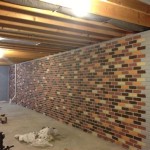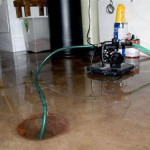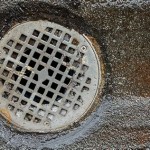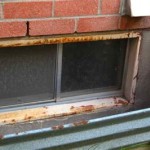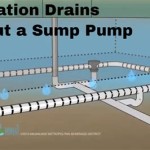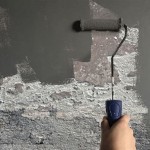What Is The Best Product to Waterproof Basement Walls?
Basement waterproofing is a critical aspect of home maintenance, protecting the structural integrity and indoor air quality of a property. Water intrusion can lead to a multitude of problems, including mold growth, wood rot, damaged belongings, and even foundational issues. Selecting the most appropriate product for waterproofing basement walls hinges on several factors, including the type of foundation, the severity of the water problem, and the budget available for the project. There is no single "best" product, as the optimal choice depends on the specific circumstances of each basement.
This article aims to provide a comprehensive overview of various basement waterproofing products, detailing their applications, advantages, and disadvantages. Understanding these aspects will empower homeowners to make informed decisions regarding their basement waterproofing needs. It is important to note that professional consultation is always recommended before undertaking any significant waterproofing project. A qualified contractor can assess the situation accurately and recommend the most suitable solution.
Understanding Basement Waterproofing Needs
Before diving into specific products, it's essential to understand the common causes of basement water intrusion. These often include hydrostatic pressure, which occurs when water accumulates in the soil surrounding the foundation. The pressure forces water through porous concrete or cracks in the foundation walls. Another common cause is capillary action, where water is drawn up through the concrete due to its porous nature. Poor drainage around the foundation, inadequate grading, and leaking downspouts can also contribute to basement moisture problems. Identifying the source of the water problem is crucial for selecting the correct waterproofing method.
Furthermore, different types of foundations require different approaches. Poured concrete foundations are generally more resistant to water penetration than concrete block foundations, which have mortar joints that can be vulnerable. Fieldstone foundations, common in older homes, are particularly susceptible to water intrusion due to their irregular shape and numerous joints. The existing condition of the foundation, including cracks or signs of deterioration, also influences the choice of waterproofing product.
Consideration should also be given to the desired outcome of the waterproofing project. Is the goal simply to prevent minor dampness, or is it to create a completely dry, habitable space? The level of protection required will significantly impact the cost and complexity of the waterproofing solution.
Common Basement Waterproofing Products
Several products are available for waterproofing basement walls, each with its own set of characteristics and applications. These products can be broadly categorized into sealants, coatings, and membranes. Understanding the properties of each category will aid in selecting the most effective solution.
Concrete Sealants: These products are designed to penetrate the concrete and create a barrier against water intrusion. They are typically applied to the interior of the basement walls. Penetrating sealants work by reacting with the concrete to form a waterproof compound within the pores of the material. This approach is effective for preventing capillary action and reducing the overall porosity of the concrete. Silicate-based sealants and silane-siloxane sealants are common types of penetrating sealants.
Concrete Coatings: These products form a waterproof layer on the surface of the basement walls. They are typically applied to the interior of the walls. Epoxy coatings and cementitious coatings are two common types. Epoxy coatings provide a durable, waterproof barrier and are resistant to chemicals. Cementitious coatings, on the other hand, are made from a mixture of cement, sand, and additives. They are relatively inexpensive and easy to apply, but may not be as durable as epoxy coatings. Elastomeric coatings are another option, offering flexibility to accommodate minor movement in the foundation walls.
Waterproof Membranes: These products are applied to the exterior of the basement walls to create a physical barrier against water intrusion. They are typically applied during new construction or when the foundation is exposed during renovation projects. There are two main types of waterproof membranes: sheet membranes and liquid-applied membranes. Sheet membranes are made from a variety of materials, including rubber, plastic, and asphalt. They are applied in rolls and adhered to the foundation walls. Liquid-applied membranes are applied as a liquid and then cure to form a waterproof barrier. They offer seamless protection and can be used to waterproof complex shapes and details. Bentonite clay membranes are also commonly used, expanding when hydrated to create an impermeable barrier.
Beyond these primary categories, some specialized products are available. These include crack injection systems for repairing cracks in the foundation walls and drainage systems for collecting and redirecting water away from the foundation. Crack injection systems typically use epoxy or polyurethane resins to fill cracks and prevent water from entering the basement. Drainage systems can be installed both inside and outside the basement to manage water flow and reduce hydrostatic pressure. Interior drainage systems often involve installing a perforated pipe along the perimeter of the basement floor to collect water and pump it out of the basement. Exterior drainage systems, also known as French drains, involve installing a perforated pipe in a trench around the foundation to intercept groundwater and redirect it away from the house.
Key Factors to Consider When Choosing a Product
Selecting the best product for waterproofing basement walls requires careful consideration of several key factors. These factors include the type of foundation, the severity of the water problem, the budget for the project, and the long-term performance requirements.
Foundation Type: As mentioned earlier, the type of foundation significantly impacts the choice of waterproofing product. Concrete block foundations, for example, may require a more robust waterproofing solution than poured concrete foundations due to their greater susceptibility to water intrusion. Fieldstone foundations may require specialized techniques and materials to address their unique challenges.
Severity of the Water Problem: The severity of the water problem will also influence the choice of product. Minor dampness may be addressed with a simple concrete sealant or coating, while severe water intrusion may require a more comprehensive solution, such as an exterior waterproof membrane and a drainage system. Determining the extent of water penetration is critical to selecting the appropriate waterproofing measures.
Budget: The budget for the project is another important consideration. Waterproofing solutions can range in cost from a few hundred dollars for a simple sealant application to several thousand dollars for a full-scale exterior waterproofing project. It's important to balance the cost of the product with its performance and durability. Choosing the cheapest option may result in recurring problems and higher costs in the long run.
Long-Term Performance: The long-term performance of the product should also be considered. Some products may provide temporary relief from water intrusion but may not be durable enough to withstand the test of time. Look for products that are known for their longevity and resistance to degradation. Consider the warranties offered by the manufacturer and research the product's performance in similar applications. It is often more cost-effective to invest in a higher-quality product that will last longer and require less maintenance.
Ease of Application: The ease of application is a practical consideration, especially for homeowners undertaking the project themselves. Some products are relatively easy to apply with basic tools and equipment, while others require specialized skills and equipment. Consider your own capabilities and experience before attempting a DIY waterproofing project. If you are not comfortable with the task, it is best to hire a professional contractor.
Environmental Impact: Environmental factors should also be considered. Some waterproofing products contain volatile organic compounds (VOCs) that can negatively impact indoor air quality. Look for products that are low-VOC or VOC-free to minimize the environmental impact and protect your health. Consider the overall sustainability of the product and its manufacturing process.
Code Compliance: Local building codes may dictate specific requirements for basement waterproofing. It's important to check with your local building department to ensure that the chosen product complies with all applicable codes. Failure to comply with building codes can result in fines and delays in the project.
Professional Consultation: Finally, it's always recommended to consult with a professional basement waterproofing contractor before making a final decision. A qualified contractor can assess the situation accurately, recommend the most suitable solution, and provide expert installation services. Consulting with a professional can help you avoid costly mistakes and ensure that the waterproofing project is completed successfully.
In summary, selecting the best product to waterproof basement walls requires a thorough understanding of the causes of water intrusion, the types of products available, and the key factors to consider when making a decision. By carefully evaluating these aspects and seeking professional advice when needed, homeowners can effectively protect their basements from water damage and ensure the long-term health of their homes. This in turn contributes to a safer and more comfortable living environment.

How To Waterproof Basement Walls With Flex Seal Products

What Are The Best Basement Waterproofing Products

Advances In Spray Applied Basement Coatings Waterproof Magazine

Kilz Basement Masonry Waterproofer

Waterproofing Basement Walls With Drylok Paint By Home Repair Tutor

Guide To Waterproofing And Sealing Your Basement Endur O Seal Usa 1 800 259 8855

Top Basement Waterproofing Methods Products Asian Paints

Dampproofing And Waterproofing For Foundation Walls Fine Homebuilding

Exterior Foundation Coating Products For Waterproofing Concrete Network

How To Waterproof Your Basement Tips For Lasting Results Using Masonry Waterproofer Zar
